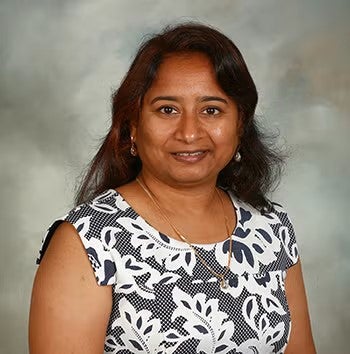When should your child see a neurologist?
July 21, 2025By: Rifali Patel, MD
Categories: Neurosciences, Pediatrics Care

Overview: Wondering if your child’s symptoms might need a neurologist’s attention? Learn about common signs and when it might be time to take the next step for their care.
As parents, it's natural to worry when your child experiences unusual symptoms, especially if they involve the brain or nervous system. You might wonder whether these symptoms are just a phase or something more serious. So when should you seek specialized care?
Signs it's time to see a pediatric neurologist
Ask your child’s provider about seeing a pediatric neurologist if your child is experiencing any of the following:
- Seizures or epilepsy
- Delays in speaking or walking
- Signs of muscle weakness
- Unusual/persistent headaches
- Abnormal or uncontrolled movements
Pediatric neurologists are medical specialists trained to diagnose and treat conditions affecting a child’s brain, spinal cord, nerves and muscles. Their expertise plays a crucial role in supporting your child’s health and development.
These specialists care for children from birth through their young adulthood. With advanced training and a deep understanding of pediatric needs, they’re uniquely equipped to provide the best possible care for your child, and the best advice to you as a parent or guardian.
Where to start?
Your first stop before seeing a pediatric neurologist is your child’s pediatrician or primary care provider. Pediatricians can help identify early signs of neurological issues and make a referral to a specialist when necessary.
While meeting with the pediatrician, trust your instincts as a parent; if something doesn’t feel right, it’s always okay to ask questions and request a referral.
What conditions do pediatric neurologists treat?
Pediatric neurologists often diagnose, treat and manage the following conditions:
- Seizures and epilepsy
- Headaches, including migraines and concussions
- Muscle problems which may cause weakness, such as muscular dystrophy or neuropathy
- Behavioral disorders (such as tics and Tourette syndrome and sleep problems)
- Developmental disorders, including cerebral palsy, delayed speech, delayed motor milestones and coordination issues
- Congenital malformations, which are problems with how the brain forms or develops
- Stroke and traumatic brain injury (TBI)
- Genetic conditions affecting the nervous system
- Autoimmune problems impacting the brain and spinal cord (such as multiple sclerosis)
- Infections or inflammation of the brain, such as meningitis or encephalitis
- Autism, attention-deficit/hyperactivity disorder (ADHD) and intellectual disability
Pediatric neurologists work as a team with pediatricians or other primary care doctors and often work closely with physical therapists, occupational therapists and speech therapists, autism centers and psychiatrists to help your child develop and learn to the best of their potential. This collaborative approach ensures that all aspects of a child’s development are supported.
By seeking care from your pediatrician, pediatric neurologist or other specialists, you can fully understand your child's health conditions. Learn more about Neurology at MercyOne
Stay connected to your child's health with MyChart

